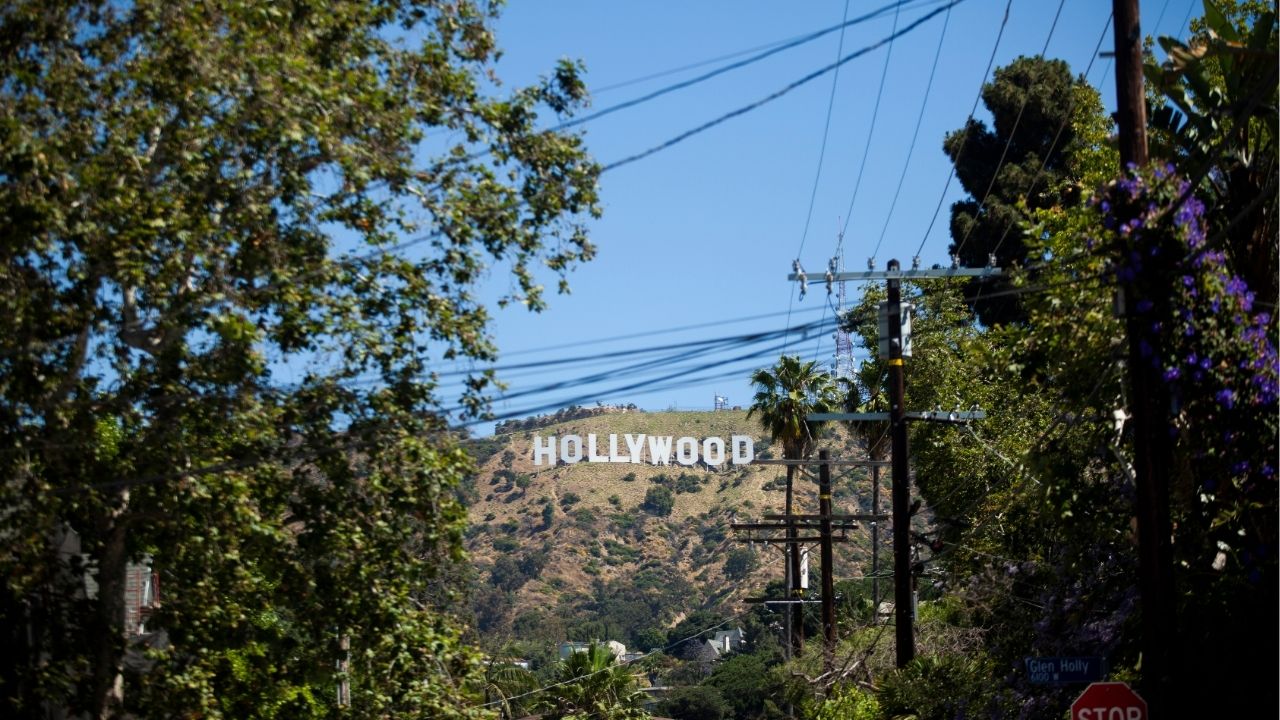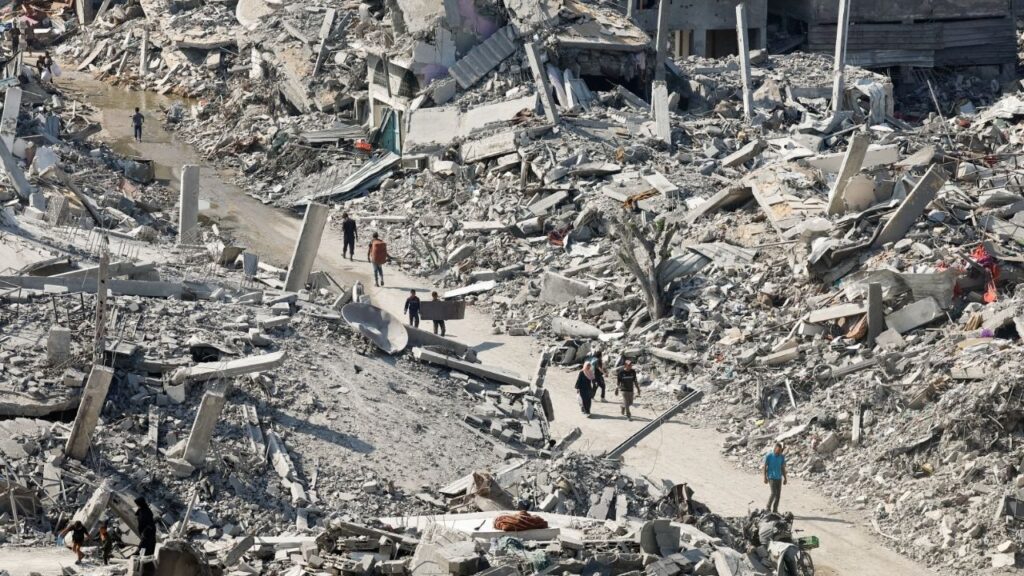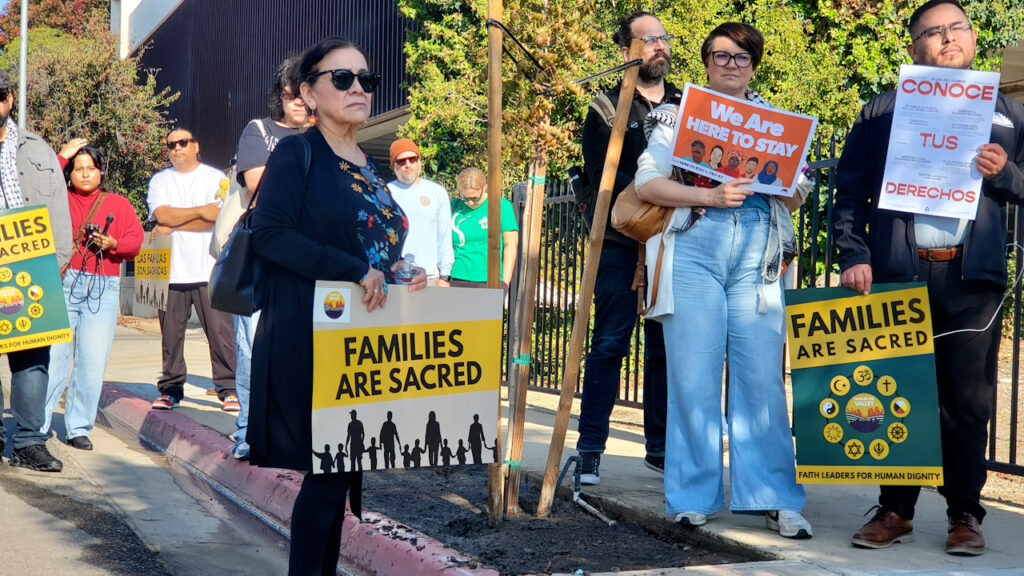The Hollywood sign in Los Angeles, July 13, 2023. Declaring foreign film production a national security threat, President Donald Trump said he had asked his top trade official to start the process of imposing a tax on Hollywood. (Jenna Schoenefeld/The New York Times)

- Trump threatens 100% tariff on foreign-made movies, calling it a national security issue amid Hollywood’s offshore production trend.
- Hollywood faces uncertainty after Trump’s tariff threat, as studios increasingly film abroad to cut costs despite job losses at home.
- Actors named as Hollywood “ambassadors” by Trump, including Mel Gibson and Jon Voight, have yet to take public action.
Share
|
Getting your Trinity Audio player ready...
|
LOS ANGELES — President Donald Trump said he would impose a 100% tariff on movies “produced” outside the United States, proclaiming in a social media post Sunday that the issue posed a national security threat.
Trump said he had authorized Jamieson Greer, the United States trade representative, to begin the process of taxing “any and all Movies coming into our Country that are produced in Foreign Lands.” Trump added, “This is a concerted effort by other Nations and, therefore, a National Security threat.”
The Motion Picture Association, which represents the biggest Hollywood studios in Washington, declined to comment. The association’s latest economic impact report, based primarily on government data and released in 2023, showed that the film industry generated a positive U.S. balance of trade for every major market in the world.
As is often the case with Trump’s declarations on social media, it was not entirely clear what he was talking about. Did he mean any movie, including independent foreign-language films destined for art house cinemas and movies that play exclusively on streaming services?
Would such a tariff apply only to movies receiving tax incentives from foreign countries — or to any movie with scenes shot overseas? What about postproduction visual effects work? A single superhero movie can often involve a half-dozen or more specialized firms scattered around the world.
Vast Majority of Movies Shown in US are US Made
Technically speaking, the vast majority of movies shown in U.S. cinemas are produced in the United States — scripts written, preproduction planning handled, principal actors cast, footage edited and sound added. But Hollywood has increasingly turned to foreign locales for the cameras-rolling part of the moviemaking process because, as with so much traditional manufacturing, it is much cheaper.
Britain, Hungary, Australia, New Zealand, Canada and other countries offer tax incentives that Disney, Warner Bros., Universal Pictures and other major movie companies, including Netflix and Amazon, have used. International locales also often come with lower labor costs.
As a result, thousands of middle-class film workers in the United States — camera operators, set decorators, lighting technicians, makeup artists, caterers, electricians — have seen work evaporate. According to the International Alliance of Theatrical Stage Employees, roughly 18,000 full-time jobs have been eliminated in the past three years, primarily in California.
“We’re allowing California to become to the entertainment industry what Detroit has become to the auto industry,” Michael F. Miller Jr., a vice president at the union, told The New York Times last month.
Sometimes the cost of shipping props and people overseas ends up costing studios more than they hope to save with tax credits. But more often, producers say, the cost of working in California is prohibitive. The budget is the budget, and those budgets keep getting tighter. Peak streaming is over, fewer people are going to movie theaters, and studios no longer get dollars from DVD sales.
Gov. Gavin Newsom has pushed to more than double the available funding for the state’s tax incentive program. Under pressure from constituents and several coalitions that formed after the recent wildfires in Los Angeles and the surrounding area, California lawmakers have also put forward bills that would increase its film tax credit.
In January, shortly before his inauguration, Trump said in a social media post that he had named Mel Gibson, Sylvester Stallone and Jon Voight as “special ambassadors” for the purpose of “bringing Hollywood, which has lost much business over the last four years to Foreign Countries, BACK — BIGGER, BETTER, AND STRONGER THAN EVER BEFORE!”
The actors, each an enthusiastic supporter of the president, have yet to do anything publicly, although Voight, who is Angelina Jolie’s father, has met with a few unions and studio executives on a private fact-finding tour.
—
This article originally appeared in The New York Times.
By Brooks Barnes/Jenna Schoenefeld
c. 2025 The New York Times Company
RELATED TOPICS:
Categories

Fresno Launching Neighborhood Repaving Project Monday



















